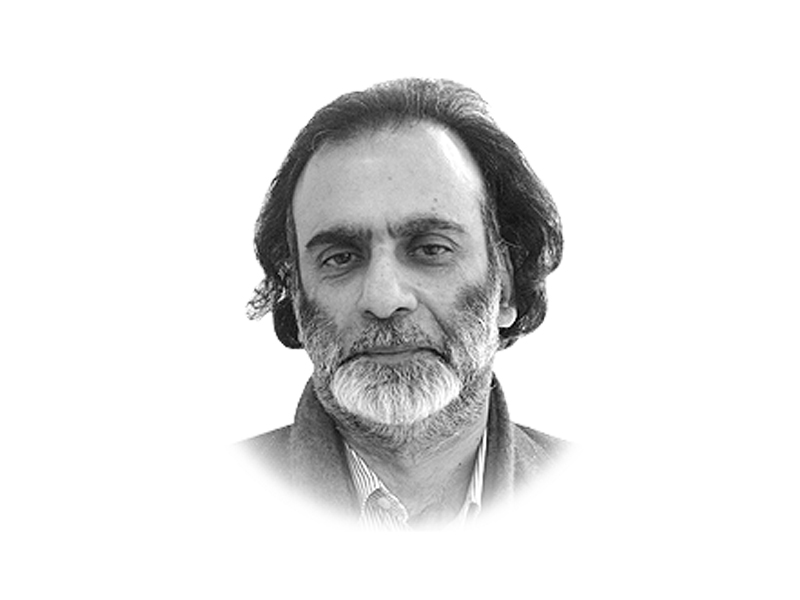
There are 25 million out-of-school children in Pakistan. This is obviously a matter of serious concern, even more so in the context of Article 25-A of the Constitution that makes education compulsory for all children between the ages of five and 16. But what kind of education are we providing those children who do have access to schools? The issue is not just about access but, equally, one of the quality of education provided. Providing access to schools without delivering education that conforms to minimum standards makes the former somewhat pointless. As the global education community shifts its focus from the right to enrollment to the right to quality education, Pakistan needs to take steps to ensure that students are not only enrolled in school but also receive quality education.
There are several elements that need to come together to ensure quality education. But, virtually nothing compares with the central role played by the teacher even in this era in which information has become so much more accessible via technology. Quality teaching depends on several factors, not least the ability and motivation of those inducted into the system.

A major problem in terms of recruitment of teachers in the public sector has been the relatively low priority given to merit. According to the National Education Census Report 2005, the education sector employs over 1.3 million teachers from the primary to the university level, with nearly 54 per cent of this figure employed in the public sector, hence providing an obvious arena for patronage. But we have seen some change here. In 2002, a policy of hiring teachers on a contractual basis was introduced in Punjab to minimise discretion with a set formula that accorded marks for qualifications while reducing the weightage given to the interview stage of the hiring process. However, the hiring policy does not provide for the differential in the standards and quality of the institutions in question. This is not particularly helpful if our objective is to induct more teachers who can help turn primary level education around. The policy of hiring on a contractual basis was also meant to enhance accountability and check teacher absenteeism by making it possible for the government to dispense with the teachers’ services without much ado. Initially, according to a study on teacher recruitment and retention carried out by the Institute of Development and Economic Alternatives, even this limited objective was not being met. Presently, while teacher absenteeism in Punjab is reported to have come down, student outcomes suggest that the quality of teaching still leaves a lot to be desired.
Currently, the proportion of Math and Science graduates being recruited as teachers is higher as is also the case with those who are required to teach English. It is interesting to note that in Punjab, there is little by way of targeted recruitment for teachers for subjects like Pakistan Studies. This is a reflection of the priority we accord to this area. Any of the staff, usually the Islamiyat or Urdu teacher, may be given the assignment of teaching the subject.
Recently, Punjab, like other provinces, has introduced tests administered by the National Testing Service (NTS) as a precondition for recruitment into the service. Given the great variation in standards and quality among institutions granting academic and professional degrees, a test of this kind seems desirable. But whether the NTS has the requisite core of specialists and technical experts to competently assess the relevant tests is yet to be independently evaluated.
Over the last few years, government teachers’ pays scales have been revised upwards but the pay is still too low to attract the best towards this profession. We are often reminded of how well off the government school teachers are, given the meagre salaries for teachers in private schools. But this is simply an unacceptable baseline given that for the most part, these salaries are well below even the minimum wage legislated by the government.
The other key aspect that needs greater consideration is that of the working conditions that aspiring teachers may look forward to. Even more than a teacher in a low-fee private school, the government school teacher faces the formidable task of teaching students from society’s lowest income strata, with children getting little support from home in terms of educational input and also often suffering from a nutritional deficit. The typical school is a small two to three room affair with perhaps as many teachers, leaving little room for peer support or an ongoing mentoring process. And, this is quite apart from the issue of facilities that remain missing in many cases, ranging from toilets to libraries. Teachers are not meaningfully consulted during decision-making on almost anything that has a bearing on student outcomes. So, whether it is the task of developing curriculum, writing textbooks, designing assessment systems or even putting into place professional support systems, it can be safely averred that the teacher will have no more than a perfunctory input, if any. It is a sad fact that the school teacher occupies a place somewhere close to the bottom of the pyramid of the education structure. His or her voice is heard only by way of political clout exercised by teacher associations.
Who gets recruited matters, but so does the support and enabling environment provided to the teacher once he/she is inducted. Minimising political influence and bringing in a merit-based system are positive steps but choosing the best among those available is a choice greatly restricted by the limited pool of good candidates. In part this has to do with the quality of academic or general education of those desiring to become teachers. This is not to say that the quality of professional education is not important. But it is a deficit of subject-content knowledge that is now generally regarded as a central concern and even institutions such as the Directorate of Staff Development in Punjab with a mandate for providing continuous professional development (pre-service and in-service teacher education) have sought to modify their training programmes to incorporate greater subject content matter. One of the findings of the Basic Research and Implementation in Developing Educational Systems survey that was held around 25 years ago was that the level of general education was a better predictor of student outcomes than professional education, assuming, of course, minimum standards of quality. So, one key intervention would be to ensure minimum standards of education in the institutions from which prospective teachers graduate. There are a number of exceptional teachers working within the system; their number and input needs to increase through better policies. What is also needed is a strategic effort to improve the quality of teaching and here a well-defined accountability framework of mutual responsibilities at the provincial government level, school level and community level can be useful.
Published in The Express Tribune, February 19th, 2015.
Like Opinion & Editorial on Facebook, follow @ETOpEd on Twitter to receive all updates on all our daily pieces.



























































COMMENTS (3)
Comments are moderated and generally will be posted if they are on-topic and not abusive.
For more information, please see our Comments FAQ